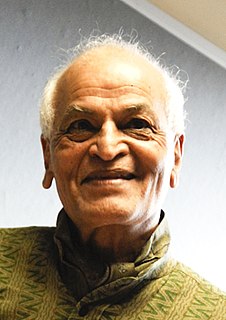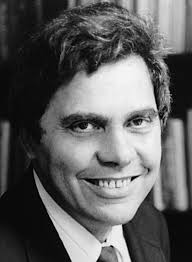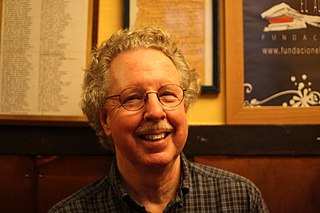 W
WWendell Erdman Berry is an American novelist, poet, essayist, environmental activist, cultural critic, and farmer. He is an elected member of the Fellowship of Southern Writers, a recipient of The National Humanities Medal, and the Jefferson Lecturer for 2012. He is also a 2013 Fellow of The American Academy of Arts and Sciences. Berry was named the recipient of the 2013 Richard C. Holbrooke Distinguished Achievement Award. On January 28, 2015, he became the first living writer to be inducted into the Kentucky Writers Hall of Fame.
 W
WGustavo Esteva is a Mexican activist, "deprofessionalized intellectual" and founder of the Universidad de la Tierra in the Mexican city of Oaxaca. He is one of the best known advocates of post-development.
 W
WChellis Glendinning is an author and activist. She has been called a pioneer in the concept of ecopsychology—the belief that promoting environmentalism is healthy. She promotes human cultures which are land-based and confined to bioregions, and is a critic of the use of technology.
 W
WTheodore John Kaczynski, also known as the Unabomber, is an American domestic terrorist and former mathematics professor. He was a mathematics prodigy, but abandoned his academic career in 1969 to pursue a primitive life. Between 1978 and 1995, he killed three people and injured 23 others in a nationwide bombing campaign against people he believed to be advancing modern technology and the destruction of the environment. He issued a social critique opposing industrialization and advocating a nature-centered form of anarchism. Kaczynski's critiques of civilization bear some similarities to anarcho-primitivism, but Kaczynski rejected and criticized anarcho-primitivist views.
 W
WSatish Kumar is an Indian British activist and speaker. He has been a Jain monk, nuclear disarmament advocate and pacifist. Now living in England, Kumar is founder and Director of Programmes of the Schumacher College international centre for ecological studies, and is Editor Emeritus of Resurgence & Ecologist magazine. His most notable accomplishment is the completion, together with a companion, E. P. Menon, of a peace walk of over 8,000 miles in 1973–4, from New Delhi to Moscow, Paris, London, and Washington, D.C., the capitals of the world's earliest nuclear-armed countries. He insists that reverence for nature should be at the heart of every political and social debate.
 W
WAlan Marshall is a New Zealand author, scholar, and artist working within the discipline of environmental studies. He is noted as a key scholar in environmental philosophy and for his investigations into eco-friendly cities of the future. For his research on these topics, the University of Wollongong awarded Marshall a doctorate and National Geographic assigned him as an explorer. Marshall is currently a visiting professor at Mahidol University, Thailand.
 W
WWilliam Ernest McKibben is an American environmentalist, author, and journalist who has written extensively on the impact of global warming. He is the Schumann Distinguished Scholar at Middlebury College and leader of the climate campaign group 350.org. He has authored a dozen books about the environment, including his first, The End of Nature (1989), about climate change.
 W
WHelena Norberg-Hodge is founder and director of Local Futures, previously known as the International Society for Ecology and Culture (ISEC). Local Futures is a non-profit organization "dedicated to the revitalization of cultural and biological diversity, and the strengthening of local communities and economies worldwide."
 W
WNeil Postman was an American author, educator, media theorist and cultural critic, who eschewed technology, including personal computers in school and cruise control in cars, and is best known for twenty books regarding technology and education, including Amusing Ourselves to Death (1985), Conscientious Objections (1988), Technopoly: The Surrender of Culture to Technology (1992), The Disappearance of Childhood (1994), and The End of Education: Redefining the Value of School (1995).
 W
WTheodore Roszak was an American academic who ended his career as Professor Emeritus of history at California State University, East Bay. He is best known for his 1969 text The Making of a Counter Culture.
 W
WLangdon Winner is Thomas Phelan Chair of Humanities and Social Sciences in the Department of Science and Technology Studies at Rensselaer Polytechnic Institute, Troy, New York.
 W
WJohn Zerzan is an American anarchist and primitivist ecophilosopher and author. His works criticize agricultural civilization as inherently oppressive, and advocates drawing upon the ways of life of hunter-gatherers as an inspiration for what a free society should look like. Subjects of his criticism include domestication, language, symbolic thought and the concept of time.